Postgraduate in Feline Medicine
Obtain your credential - PgCert. Fel. Med. ifevet
Postgraduate in Feline Medicine
Obtain your credential -
PgCert. Fel. Med. ifevet
Start date
23rd May 2026
Timetable
Saturday from 9:00 to 18:30 Sunday from 9:00 to 14:30
ECTS Credits
30 ECTS credits
Number of modules
12 modules
Modality
Streaming
Number of students
36 students
Start date
23rd May 2026
Timetable
Saturday, 9 to 18:30 Sunday, 9 to 14:30
ECTS Credits
30 ECTS credits
Modules
12 modules
Modality
Streaming
Number of students
36 students
- Description
- Speakers
- Programme
- Pricing
Certification obtained
After passing the postgraduate university training, you will be able to obtain the following credentials to use in your CV:
• International Credential: PgCert. Fel. Med. ifevet
• Certification obtained: Postgraduate Certificate in Feline Medicine (ifevet)
Course Objective
This course aims to increase confidence in managing feline medical cases commonly encountered in general practice. It aims to develop understanding of aspects unique to feline medicine, as well as a logical, problem-based, and evidence-based approach to a broad range of clinical presentations.
Structure and benefits of the postgraduate programme
The postgraduate program consists of 12 modules, each delivered by specialists in their respective fields to ensure up-to-date and high-quality teaching. Each module includes a mix of remote lectures, clinical cases, and discussion boards. These components aim to equip students with a systematic approach to a variety of clinical problems. Upon completing the course, students will be capable of conducting thorough patient histories and assessments to establish comprehensive problem lists, generating relevant differential diagnoses, planning appropriate diagnostic investigations, making evidence-based treatment recommendations, and understanding patient prognosis.
Target Audience
The course is designed for professionals working in first opinion or emergency practice, aiming to deepen their understanding of feline medicine and update their knowledge base. The course will be relevant for both clinicians with some experience in feline medicine and newer graduates looking to establish firm foundations in this subject.

Mary Trehy
BSc BvetMed MRCVS DipECVIM-CA, RCVS and EBVS® European Specialist in small animal internal | Director of Feline Medicine postgradute course

Susanna Spence
BVMS, MVM, DipECVIM- CA, MRCVS, EBVS® European and RCVS Specialist in small animal Internal Medicine


Date: 23rd May 2026
Modality: Streaming
Competencies and objectives:
- Develop a confident, logical, and problem-based approach to feline consultations.
- Maximise the information that can be gathered from a thorough history and physical examination.
- Appreciate the potential for patients with systemic disorders to present with neurological, dermatological, and ophthalmological signs.
- Develop a logical approach to failure to thrive in juvenile cats.
- Use presenting signs to identify possible toxin exposure in cats.
Module Summary:
- The problem-based approach and getting the most out of history and physical examination of feline patients.
- Neurological presentations of systemic disease.
- Dermatological presentations of systemic disease.
- Ophthalmological presentations of systemic disease.
- Approach to poor growth in juveniles.
- Presenting signs associated with common toxins encountered in feline medicine.
Speaker: Mary Trehy, Adam Margetts
Date: 24th May 2026
Modality: Streaming
Competencies and objectives:
- Confidently interpret abnormalities in feline haematology, biochemistry and urinalysis profiles.
- Understand appropriate use of biomarkers in feline medicine.
- Appreciate the nutritional requirements of cats in health and disease.
- Understand the causes and impact of obesity, cachexia and sarcopenia in cats.
Module Summary:
- Feline haematology profile interpretation.
- Interpreting changes on routine feline biochemical profiles.
- Interpreting extended biochemical profiles and urinalysis.
- Use of emerging biomarkers in feline medicine.
- Feline nutrition 1: Nutritional management in health and in specific diseases.
- Feline nutrition 2: Obesity, cachexia and sarcopenia.
Speaker: Mary Trehy
Date: 20th June 2026
Modality: Streaming
Competencies and objectives:
- Understand the causes and diagnostic approach to acute and chronic enteropathies in cats.
- Develop a logical and thorough management approach to these cases.
- Understand how to approach motility disorders in cats.
- Develop a logical approach to weight loss in cats.
- Understand feline triaditis and its management.
Module Summary:
- Acute enteropathy in cats: Diagnosis and management.
- Feline chronic enteropathy 1: Diagnostic approach.
- Feline chronic enteropathy 2: Management considerations.
- Diagnostic approach to weight loss in the cat.
- Motility disorders in cats.
- Feline ‘triaditis’.
Speaker: Mary Trehy, Erin O’Connell
Date: 21st June 2026
Modality: Streaming
Competencies and objectives:
- Develop a logical approach to investigating feline hepatobiliary disease.
- Understand the development and optimal management of feline pancreatitis and portovascular anomalies.
- Be able to recognise and appropriately manage conditions including exocrine pancreatic insufficiency, cholangitis/cholangiohepatitis and cholelithiasis.
Module Summary:
- Inflammatory and infectious feline liver disease.
- Hepatic lipidosis.
- Feline pancreatitis and exocrine pancreatic insufficiency.
- Porto-vascular anomalies in cats.
- Feline cholangitis/cholangiohepatitis.
- Disease of the gall bladder and biliary tree.
Speaker: Susana Spence, Mary Trehy
Date: 18th July 2026
Modality: Streaming
Competencies and objectives:
- Understand how to clinically evaluate the preclinical and clinical feline cardiac patient
- Learn to select appropriate diagnostic tests for assessment of the feline cardiac patient and how to critically assess diagnostic findings
- Develop a logical approach to the diagnosis and management of preclinical feline cardiomyopathies
- Develop a safe approach to the triage and acute management of feline congestive heart failure in addition to chronic management of this condition
- Know how to approach cardiogenic thromboembolism in feline patients
- Have a basic understanding of congenital heart disease in the feline patient
Module Summary:
- Physical assessment of the feline cardiac patient
- Diagnostics in feline heart disease
- Feline acquired cardiomyopathies
- Management of feline congestive heart failure
- Feline aortic thromboembolism
- Feline congenital heart disease
Speaker: Julie Hamilton Elliott
Date: 19th July 2026
Modality: Streaming
Competencies and objectives:
- Understand how to clinically evaluate abnormalities of the feline respiratory system.
- Understand the infectious causes of upper airway disease in cats, including testing for, and management of each.
- Develop a logical approach to nasal disease, nasopharyngeal, laryngeal, and tracheal disease.
- Understand feline lower airway disease (feline asthma and chronic bronchitis).
- Know how to approach and manage pulmonary parenchymal disease and pleural space disease.
Module Summary:
- Feline upper respiratory tract infections.
- Chronic rhinitis and other non-neoplastic nasal/nasopharyngeal disease.
- Diseases of the feline larynx and trachea.
- Feline lower airway disease.
- Pulmonary parenchymal disease.
- Pleural space disease.
Speaker: Mary Trehy
Date: 12th September 2026
Modality: Streaming
Competencies and objectives:
- Understand the pathogenesis and optimal management of feline infectious peritonitis, retroviruses, mycobacterial infections, toxoplasma and haemotropic mycoplasma.
- Be aware of recent developments in the management of feline infectious diseases.
Module Summary:
- Feline mycobacterial infections.
- Feline infectious peritonitis 1 – update on diagnostics.
- Feline infectious peritonitis 1 – update on treatment and monitoring.
- Haemotropic mycoplasmas.
- Toxoplasmosis.
- Feline retroviruses.
Speaker: Hannah Walker, Mary Trehy
Date: 13th September 2026
Modality: Streaming
Competencies and objectives:
- Be able to confidently investigate regenerative and non-regenerative anaemias in cats.
- Have a thorough understanding of feline bleeding disorders.
- Understand pathogenesis and management of a variety of immune mediated diseases in cats.
- Be able to recall causes of, investigation of, and management of polycythaemia in cats.
- Develop a logical approach to pyrexia of unknown origin.
Module Summary:
- Platelet disorders in cats.
- Other bleeding disorders in cats.
- Immune-mediated haemolytic anaemia and other regenerative anaemias in cats.
- Non-regenerative anaemia in cats.
- Feline erythrocytosis.
- Immune-mediated polyarthritis, approach to pyrexia, and other immune-mediated diseases of cats.
Speaker: Eilidh Gunn, Mary Trehy
Date: 17th October 2026
Modality: Streaming
Competencies and objectives:
- Be confident in making appropriate decisions regarding feline transfusion medicine (what to transfuse, when, and what monitoring to perform).
- Recognising and managing shock and sepsis in cats.
- Evaluate and manage pain in feline patients.
- Develop a thorough and logical approach to respiratory emergencies and diabetic ketoacidosis.
Module Summary:
- Feline transfusion medicine 1: What to transfuse and when?.
- Feline transfusion medicine 2: Administering transfusions and transfusion reactions.
- Shock and sepsis in cats.
- Pain evaluation and management in cats.
- Feline diabetic ketoacidosis.
- Initial approach to respiratory emergencies.
Speaker: Eilidh Gunn, Mary Trehy
Date: 18th October 2026
Modality: Streaming
Competencies and objectives:
- Understand the aetiology of cancer and how to clinically evaluate clinical signs related to the most common malignancies in cats.
- Develop a logical approach to feline oncology, interpretation of diagnostic tests and potential
treatment including supportive care. - Understand clinical presentation, management, and treatment of feline lymphoma.
- Know how to approach and manage cutaneous, respiratory, mediastinal and mammary tumours.
Module Summary:
- Aetiology of cancer, paraneoplastic syndromes, clinical staging and antineoplastic treatment.
- Alimentary, peripheral and extranodal lymphoma.
- How to diagnose and manage the most common cutaneous tumours.
- Tumours of the respiratory tract and mediastinum.
- Mammary tumours: staging, treatment and prognosis.
Speaker: Elisabetta Treggiari
Date: 21st November 2026
Modality: Streaming
Competencies and objectives:
- Be able to recognise and investigate signs of possible endocrinopathies.
- Confidently interpret results of endocrine testing.
- Appreciate the potential for interplay between disorders in patients with multiple endocrinopathies.
- Understand the optimal management for each condition in cats.
Module Summary:
- Feline hypersomatotropism.
- Feline thyroid disorders.
- Feline diabetes mellitus.
- Feline hypoadrenocorticism.
- Feline Cushing’s syndrome and other adrenal gland disorders.
- Approach to feline hypercalcaemia.
Speaker: Eilidh Gunn, Susanna Spence, Mary Trehy
Date: 22nd November 2026
Modality: Streaming
Competencies and objectives:
- Be able to classify and stage/grade kidney injuries in cats.
- Apply evidence-based medicine to the management of chronic kidney disease.
- Understand the pathophysiology, management and prognosis with acute kindey injury in cats.
- Develop a thorough approach to disorders of the lower urinary tract, including micturition disorders and feline lower urinary tract disease.
Module Summary:
- Classification of kidney injury.
- Acute kidney injury.
- Chronic kidney disease 1: Diagnostic investigation and staging.
- Chronic kidney disease 2: Management, monitoring and prognosis.
- Lower urinary tract disease 1: Neuroanatomy and micturition disorders.
- Lower urinary tract disease 2: Approach to feline lower urinary tract disease.
Speaker: Mary Trehy
We offer two payment options:
- Pay in full via credit or debit card, or BACS
- Interest-free instalments
For more details on interest-free instalment options, please complete the ‘Request for More Information’ form.
· Price (exam included):
- United Kingom:
 United Kingdom – £ 7,700
United Kingdom – £ 7,700
- Other countries:
 Europe – 8,900 €
Europe – 8,900 €  Australia – $ 16,300
Australia – $ 16,300 New Zealand – $ 17,500
New Zealand – $ 17,500 USA – $ 9,900
USA – $ 9,900
* Note: The digital certificate is included in the programme fee.
Terms and conditions of payment
To complete your enrolment, kindly submit the online registration form by selecting ‘Register Now’ and proceed with your first payment, either in full or as the initial instalment.
If you have chosen our instalment plan, the monthly payments must be made via direct debit within the first 10 days of each month.
All payments must be completed before the final exam in order for the PgCert certificate and credentials to be issued.
Certification obtained
After passing the postgraduate university training, you will be able to obtain the following credentials to use in your CV:
• International Credential: PgCert. Fel. Med. ifevet
• Certification obtained: Postgraduate Certificate in Feline Medicine (ifevet)
Course Objective
This course aims to increase confidence in managing feline medical cases commonly encountered in general practice. It aims to develop understanding of aspects unique to feline medicine, as well as a logical, problem-based, and evidence-based approach to a broad range of clinical presentations.
Structure and benefits of the postgraduate programme
The postgraduate program consists of 12 modules, each delivered by specialists in their respective fields to ensure up-to-date and high-quality teaching. Each module includes a mix of remote lectures, clinical cases, and discussion boards. These components aim to equip students with a systematic approach to a variety of clinical problems. Upon completing the course, students will be capable of conducting thorough patient histories and assessments to establish comprehensive problem lists, generating relevant differential diagnoses, planning appropriate diagnostic investigations, making evidence-based treatment recommendations, and understanding patient prognosis.
Target Audience
The course is designed for professionals working in first opinion or emergency practice, aiming to deepen their understanding of feline medicine and update their knowledge base. The course will be relevant for both clinicians with some experience in feline medicine and newer graduates looking to establish firm foundations in this subject.

Mary Trehy
BSc BvetMed MRCVS DipECVIM-CA, RCVS and EBVS® European Specialist in small animal internal | Director of Feline Medicine postgradute course

Susanna Spence
BVMS, MVM, DipECVIM- CA, MRCVS, EBVS® European and RCVS Specialist in small animal Internal Medicine


Date: 23rd May 2026
Modality: Streaming
Competencies and objectives:
- Develop a confident, logical, and problem-based approach to feline consultations.
- Maximise the information that can be gathered from a thorough history and physical examination.
- Appreciate the potential for patients with systemic disorders to present with neurological, dermatological, and ophthalmological signs.
- Develop a logical approach to failure to thrive in juvenile cats.
- Use presenting signs to identify possible toxin exposure in cats.
Module Summary:
- The problem-based approach and getting the most out of history and physical examination of feline patients.
- Neurological presentations of systemic disease.
- Dermatological presentations of systemic disease.
- Ophthalmological presentations of systemic disease.
- Approach to poor growth in juveniles.
- Presenting signs associated with common toxins encountered in feline medicine.
Speaker: Mary Trehy, Adam Margetts
Date: 24th May 2026
Modality: Streaming
Competencies and objectives:
- Confidently interpret abnormalities in feline haematology, biochemistry and urinalysis profiles.
- Understand appropriate use of biomarkers in feline medicine.
- Appreciate the nutritional requirements of cats in health and disease.
- Understand the causes and impact of obesity, cachexia and sarcopenia in cats.
Module Summary:
- Feline haematology profile interpretation.
- Interpreting changes on routine feline biochemical profiles.
- Interpreting extended biochemical profiles and urinalysis.
- Use of emerging biomarkers in feline medicine.
- Feline nutrition 1: Nutritional management in health and in specific diseases.
- Feline nutrition 2: Obesity, cachexia and sarcopenia.
Speaker: Mary Trehy
Date: 20th June 2026
Modality: Streaming
Competencies and objectives:
- Understand the causes and diagnostic approach to acute and chronic enteropathies in cats.
- Develop a logical and thorough management approach to these cases.
- Understand how to approach motility disorders in cats.
- Develop a logical approach to weight loss in cats.
- Understand feline triaditis and its management.
Module Summary:
- Acute enteropathy in cats: Diagnosis and management.
- Feline chronic enteropathy 1: Diagnostic approach.
- Feline chronic enteropathy 2: Management considerations.
- Diagnostic approach to weight loss in the cat.
- Motility disorders in cats.
- Feline ‘triaditis’.
Speaker: Mary Trehy, Erin O’Connell
Date: 21st June 2026
Modality: Streaming
Competencies and objectives:
- Develop a logical approach to investigating feline hepatobiliary disease.
- Understand the development and optimal management of feline pancreatitis and portovascular anomalies.
- Be able to recognise and appropriately manage conditions including exocrine pancreatic insufficiency, cholangitis/cholangiohepatitis and cholelithiasis.
Module Summary:
- Inflammatory and infectious feline liver disease.
- Hepatic lipidosis.
- Feline pancreatitis and exocrine pancreatic insufficiency.
- Porto-vascular anomalies in cats.
- Feline cholangitis/cholangiohepatitis.
- Disease of the gall bladder and biliary tree.
Speaker: Susana Spence, Mary Trehy
Date: 18th July 2026
Modality: Streaming
Competencies and objectives:
- Understand how to clinically evaluate the preclinical and clinical feline cardiac patient
- Learn to select appropriate diagnostic tests for assessment of the feline cardiac patient and how to critically assess diagnostic findings
- Develop a logical approach to the diagnosis and management of preclinical feline cardiomyopathies
- Develop a safe approach to the triage and acute management of feline congestive heart failure in addition to chronic management of this condition
- Know how to approach cardiogenic thromboembolism in feline patients
- Have a basic understanding of congenital heart disease in the feline patient
Module Summary:
- Physical assessment of the feline cardiac patient
- Diagnostics in feline heart disease
- Feline acquired cardiomyopathies
- Management of feline congestive heart failure
- Feline aortic thromboembolism
- Feline congenital heart disease
Speaker: Julie Hamilton Elliott
Date: 19th July 2026
Modality: Streaming
Competencies and objectives:
- Understand how to clinically evaluate abnormalities of the feline respiratory system.
- Understand the infectious causes of upper airway disease in cats, including testing for, and management of each.
- Develop a logical approach to nasal disease, nasopharyngeal, laryngeal, and tracheal disease.
- Understand feline lower airway disease (feline asthma and chronic bronchitis).
- Know how to approach and manage pulmonary parenchymal disease and pleural space disease.
Module Summary:
- Feline upper respiratory tract infections.
- Chronic rhinitis and other non-neoplastic nasal/nasopharyngeal disease.
- Diseases of the feline larynx and trachea.
- Feline lower airway disease.
- Pulmonary parenchymal disease.
- Pleural space disease.
Speaker: Mary Trehy
Date: 12th September 2026
Modality: Streaming
Competencies and objectives:
- Understand the pathogenesis and optimal management of feline infectious peritonitis, retroviruses, mycobacterial infections, toxoplasma and haemotropic mycoplasma.
- Be aware of recent developments in the management of feline infectious diseases.
Module Summary:
- Feline mycobacterial infections.
- Feline infectious peritonitis 1 – update on diagnostics.
- Feline infectious peritonitis 1 – update on treatment and monitoring.
- Haemotropic mycoplasmas.
- Toxoplasmosis.
- Feline retroviruses.
Speaker: Hannah Walker, Mary Trehy
Date: 13th September 2026
Modality: Streaming
Competencies and objectives:
- Be able to confidently investigate regenerative and non-regenerative anaemias in cats.
- Have a thorough understanding of feline bleeding disorders.
- Understand pathogenesis and management of a variety of immune mediated diseases in cats.
- Be able to recall causes of, investigation of, and management of polycythaemia in cats.
- Develop a logical approach to pyrexia of unknown origin.
Module Summary:
- Platelet disorders in cats.
- Other bleeding disorders in cats.
- Immune-mediated haemolytic anaemia and other regenerative anaemias in cats.
- Non-regenerative anaemia in cats.
- Feline erythrocytosis.
- Immune-mediated polyarthritis, approach to pyrexia, and other immune-mediated diseases of cats.
Speaker: Eilidh Gunn, Mary Trehy
Date: 17th October 2026
Modality: Streaming
Competencies and objectives:
- Be confident in making appropriate decisions regarding feline transfusion medicine (what to transfuse, when, and what monitoring to perform).
- Recognising and managing shock and sepsis in cats.
- Evaluate and manage pain in feline patients.
- Develop a thorough and logical approach to respiratory emergencies and diabetic ketoacidosis.
Module Summary:
- Feline transfusion medicine 1: What to transfuse and when?.
- Feline transfusion medicine 2: Administering transfusions and transfusion reactions.
- Shock and sepsis in cats.
- Pain evaluation and management in cats.
- Feline diabetic ketoacidosis.
- Initial approach to respiratory emergencies.
Speaker: Eilidh Gunn, Mary Trehy
Date: 18th October 2026
Modality: Streaming
Competencies and objectives:
- Understand the aetiology of cancer and how to clinically evaluate clinical signs related to the most common malignancies in cats.
- Develop a logical approach to feline oncology, interpretation of diagnostic tests and potential
treatment including supportive care. - Understand clinical presentation, management, and treatment of feline lymphoma.
- Know how to approach and manage cutaneous, respiratory, mediastinal and mammary tumours.
Module Summary:
- Aetiology of cancer, paraneoplastic syndromes, clinical staging and antineoplastic treatment.
- Alimentary, peripheral and extranodal lymphoma.
- How to diagnose and manage the most common cutaneous tumours.
- Tumours of the respiratory tract and mediastinum.
- Mammary tumours: staging, treatment and prognosis.
Speaker: Elisabetta Treggiari
Date: 21st November 2026
Modality: Streaming
Competencies and objectives:
- Be able to recognise and investigate signs of possible endocrinopathies.
- Confidently interpret results of endocrine testing.
- Appreciate the potential for interplay between disorders in patients with multiple endocrinopathies.
- Understand the optimal management for each condition in cats.
Module Summary:
- Feline hypersomatotropism.
- Feline thyroid disorders.
- Feline diabetes mellitus.
- Feline hypoadrenocorticism.
- Feline Cushing’s syndrome and other adrenal gland disorders.
- Approach to feline hypercalcaemia.
Speaker: Eilidh Gunn, Susanna Spence, Mary Trehy
Date: 22nd November 2026
Modality: Streaming
Competencies and objectives:
- Be able to classify and stage/grade kidney injuries in cats.
- Apply evidence-based medicine to the management of chronic kidney disease.
- Understand the pathophysiology, management and prognosis with acute kindey injury in cats.
- Develop a thorough approach to disorders of the lower urinary tract, including micturition disorders and feline lower urinary tract disease.
Module Summary:
- Classification of kidney injury.
- Acute kidney injury.
- Chronic kidney disease 1: Diagnostic investigation and staging.
- Chronic kidney disease 2: Management, monitoring and prognosis.
- Lower urinary tract disease 1: Neuroanatomy and micturition disorders.
- Lower urinary tract disease 2: Approach to feline lower urinary tract disease.
Speaker: Mary Trehy
We offer two payment options:
- Pay in full via credit or debit card, or BACS
- Interest-free instalments
For more details on interest-free instalment options, please complete the ‘Request for More Information’ form.
· Price (exam included):
- United Kingom:
 United Kingdom – £ 7,700
United Kingdom – £ 7,700
- Other countries:
 Europe – 8,900 €
Europe – 8,900 €  Australia – $ 16,300
Australia – $ 16,300 New Zealand – $ 17,500
New Zealand – $ 17,500 USA – $ 9,900
USA – $ 9,900
* Note: The digital certificate is included in the programme fee.
Terms and conditions of payment
To complete your enrolment, kindly submit the online registration form by selecting ‘Register Now’ and proceed with your first payment, either in full or as the initial instalment.
If you have chosen our instalment plan, the monthly payments must be made via direct debit within the first 10 days of each month.
All payments must be completed before the final exam in order for the PgCert certificate and credentials to be issued.
Testimonials from our students
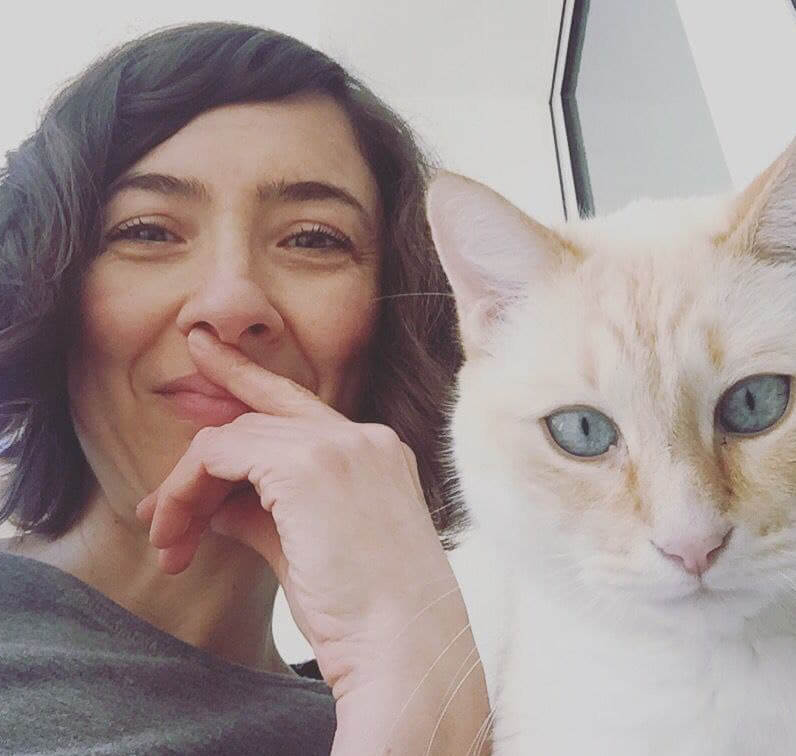
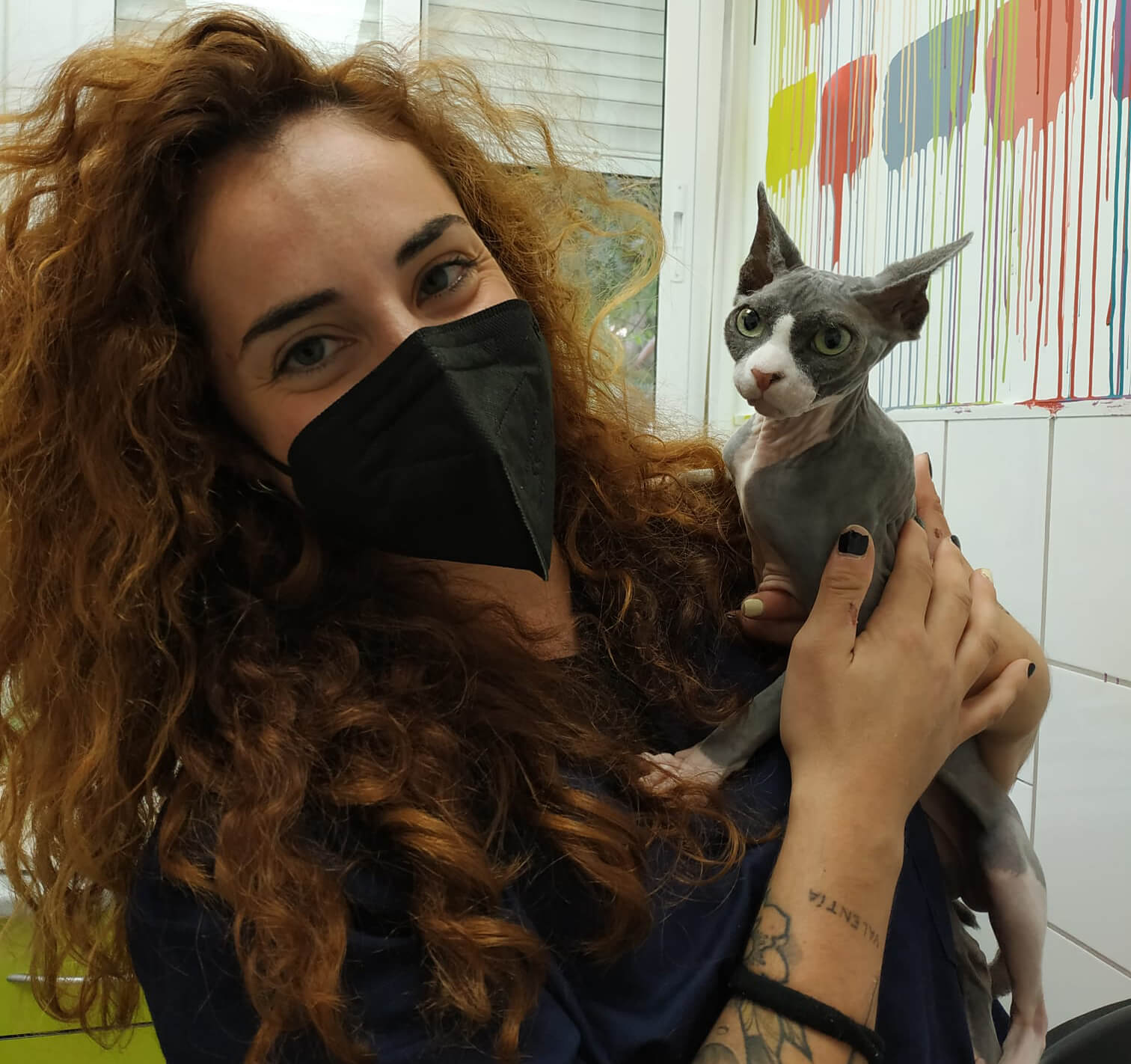
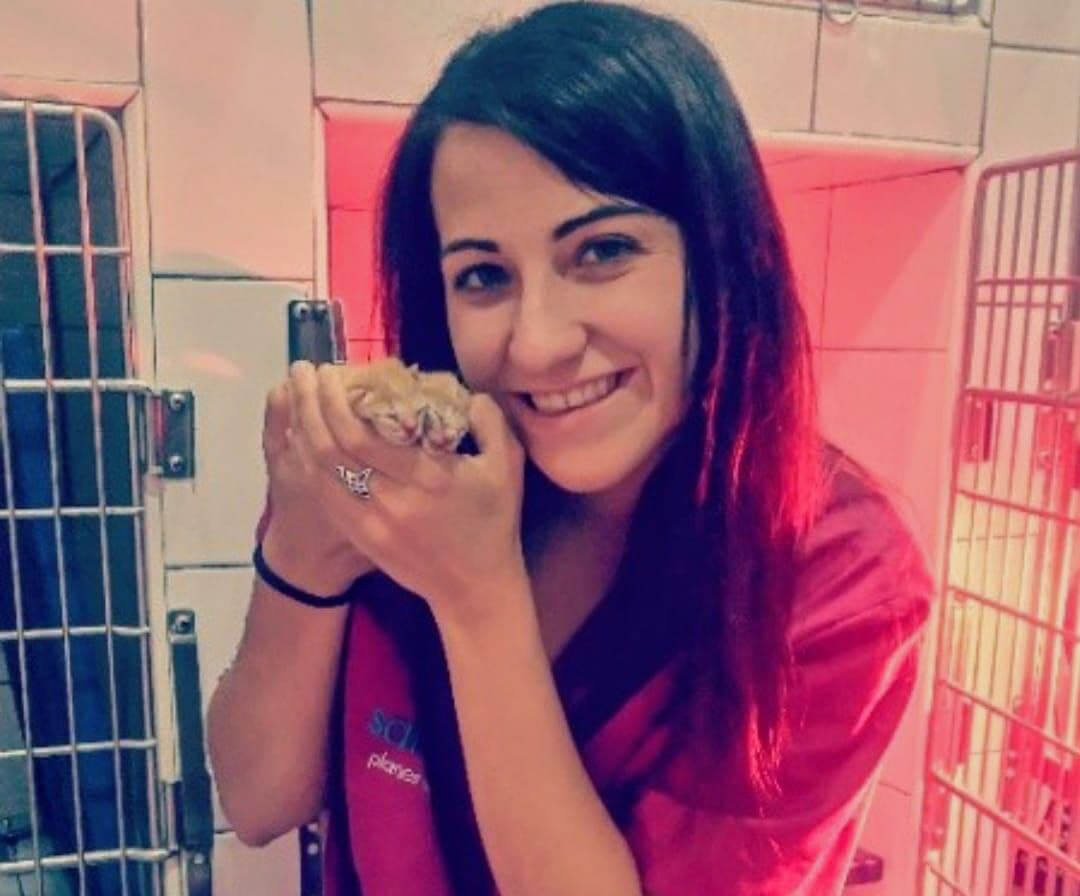
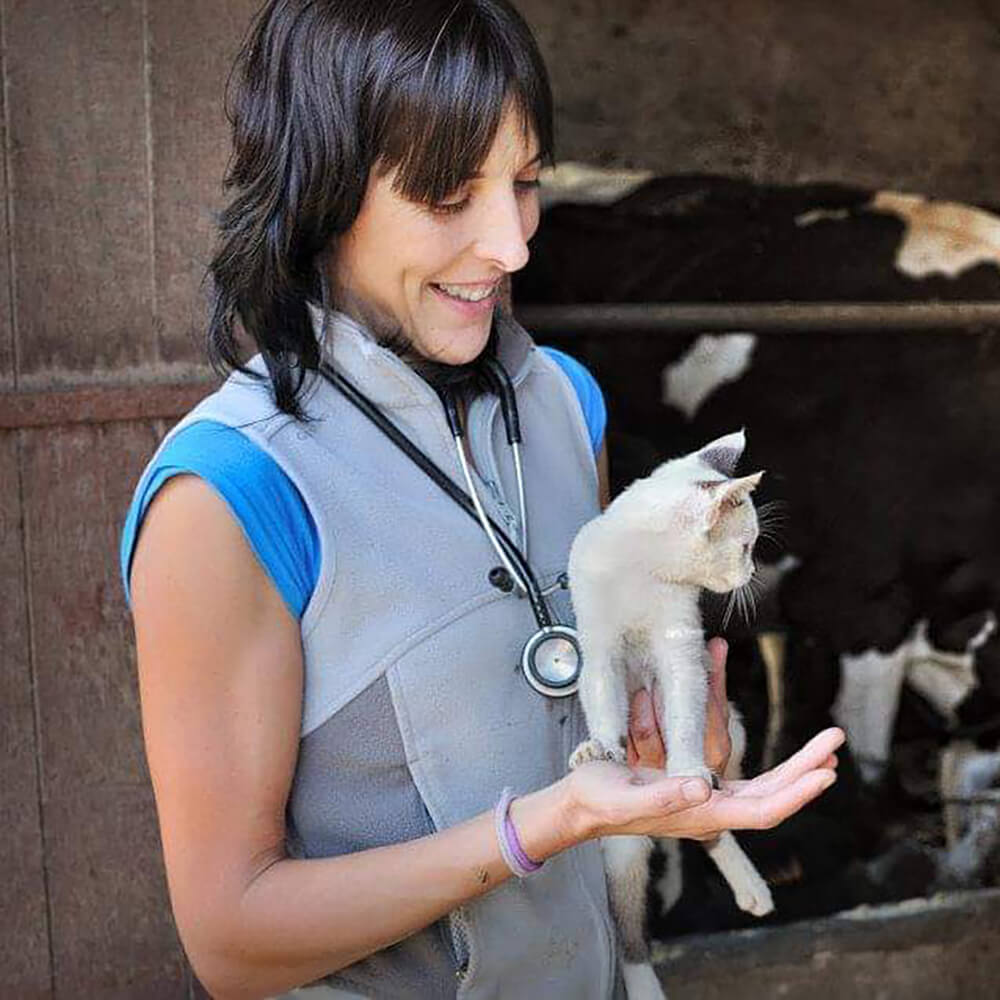
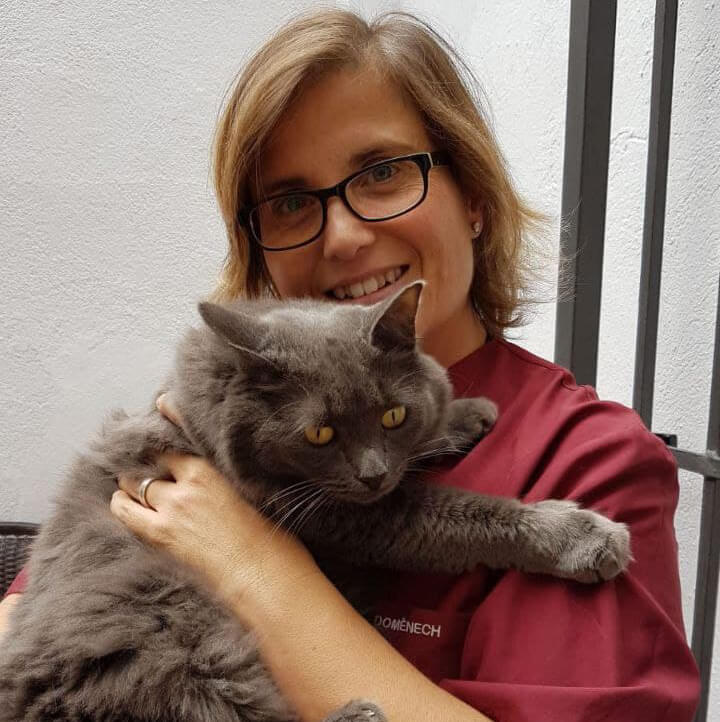
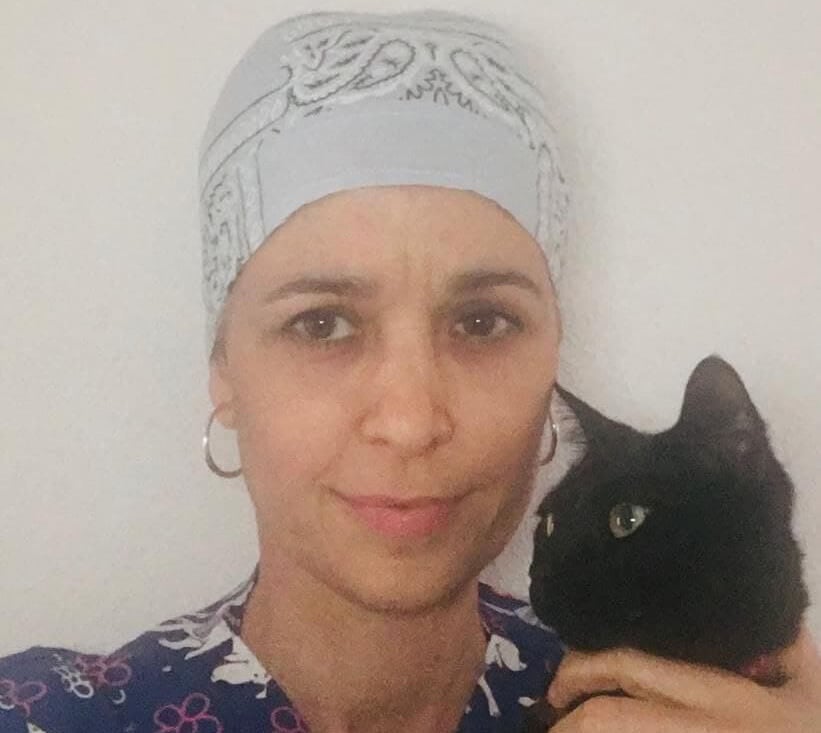
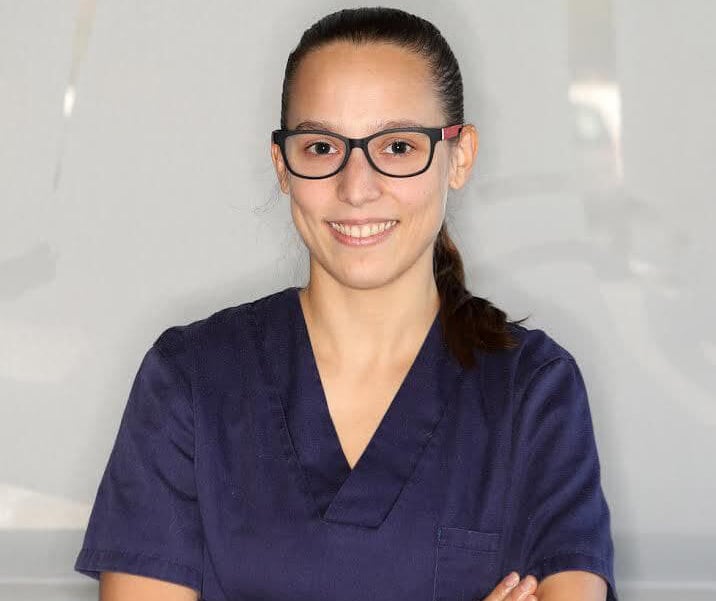
Testimonials from our students







Contact us
If you would like to request information about any of our training services, please fill in the following form or contact us by phone or email
- +44 7862 146532
- [email protected]
- From 8.00am to 17.00pm
Request for information
Contact us
If you would like to request information about any of our training services, please fill in the following form or contact us by phone or email
- +44 7862 146532
- [email protected]
- From 8.00am to 17.00pm





